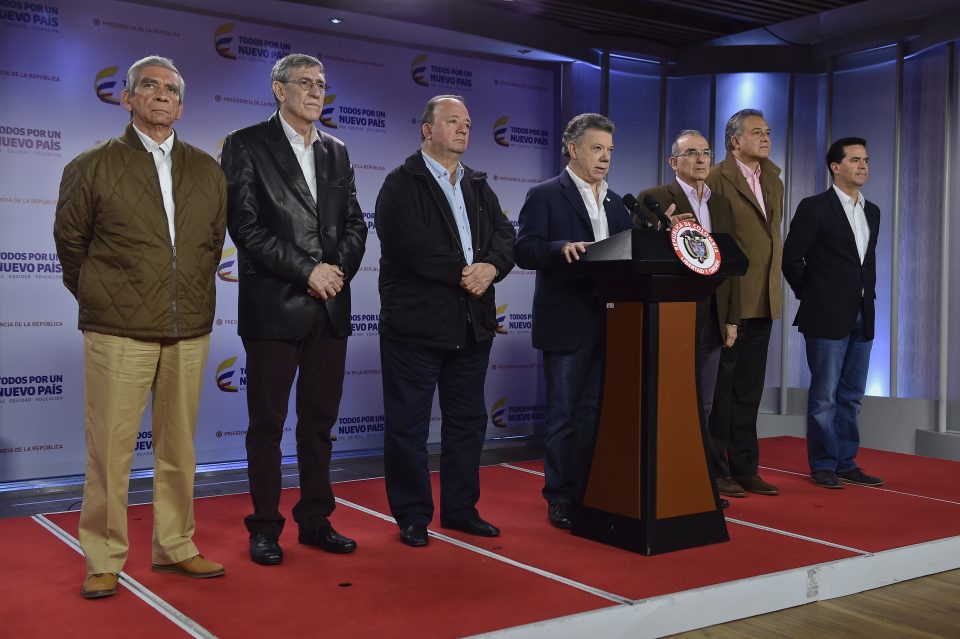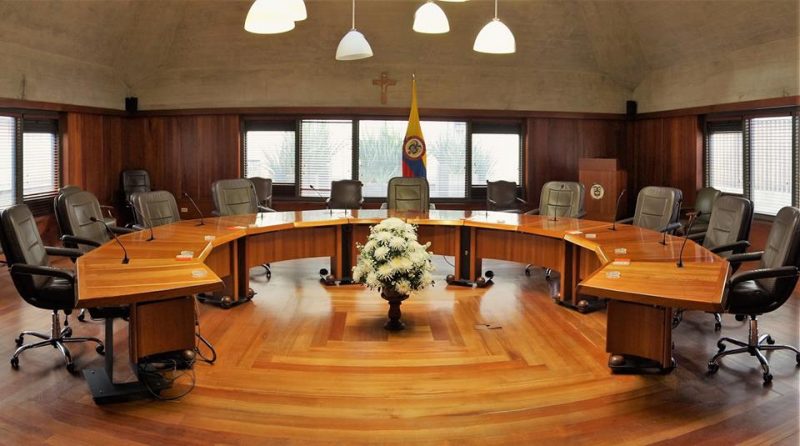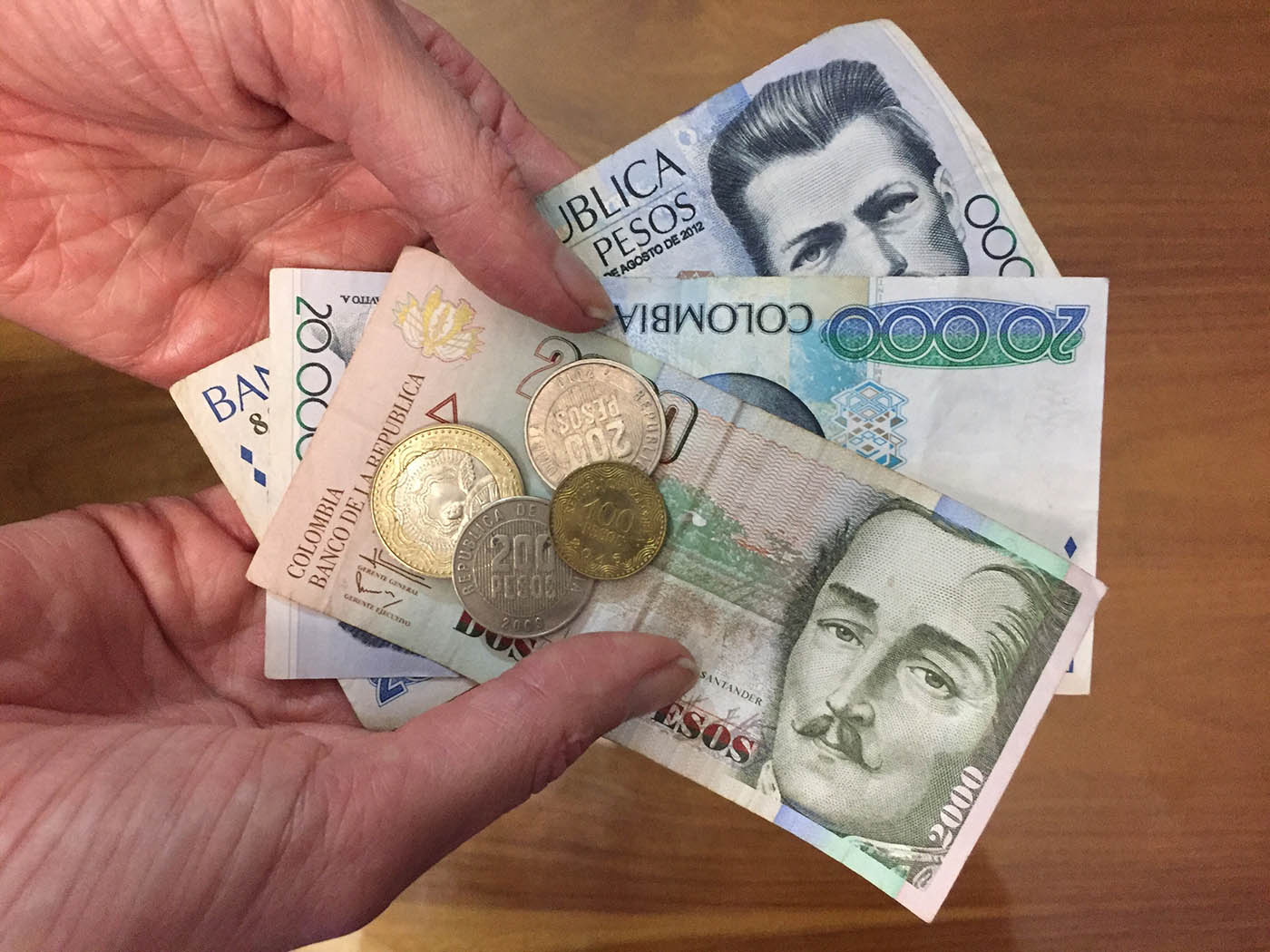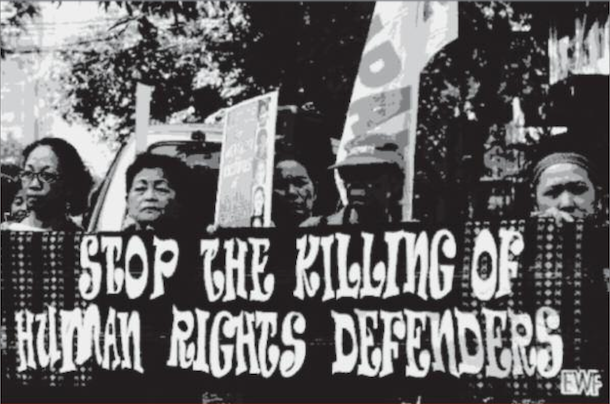
President Santos, along with the government negotiating team have announced a new, improved peace agreement. Photo: presidencia.gov.co
The FARC and government delegations in Havana announced the details of a new, improved peace agreement that replaces the deal signed in Cartagena in September.
Following the ‘No’ victory in the plebiscite on October 2, government negotiators entered an intense phase of discussions with representatives of the ‘No’ campaign, with the FARC, with victims, indigenous groups, women’s rights groups and with other parts of Colombian society.
In Havana, the new round of talks finished today, November 12 after the teams worked for 14 hours a day to resolve some of the factors that lead people to vote ‘No’.
Speaking from Cuba, chief government negotiator Humberto de la Calle, said that the new agreement was a chance to unite the country.
“This new agreement was an opportunity to clarify doubts and resolve concerns, but above all to unite all of us us Colombians.”
He admitted that at the time he believed the original agreement was the best possible – even though it was not perfect: “Now I wish to make a personal confession: I said that the September 26 agreement was the best possible agreement, although it was also susceptible to criticism.”
He continued, “Today I humbly acknowledge that this agreement is better as it solves many of those criticisms and dissatisfactions. Your acceptance will not be unanimous. Nor was it in the first agreement. But we hope your support base will make it more solid.”
Key aspects of the new agreement that will be presented to the public include:
- Commitment from the FARC to present an inventory of their assets that can be used in the reparation of the victims
- Changes to the transitional justice agreement, particularly on the issue of political crimes and drug trafficking. These will be judged on a case by case basis, taking into account Colombian law
- Under rural reform, the constitutional right to own property will supercede anything in the text of the agreement
- Concrete aspects in the ways in which the FARC will cooperate in the fight against drugs
- The only judges able to rule in transitional justice cases will be Colombian – no foreign judges will be allowed.
Senator Uribe, who had been invited to discussions with the President and the Ministry of Defence was quick to tweet that the new text is not “definite”.
President Santos addressed the nation and said that the new agreement was the result of a “great national dialogue” for unity and reconciliation.
He said that over 500 proposals had been received from all parts of society since the plebiscite. These were condensed into 57 topics for discussion, and on 56 of them adjustments have been made to the deal.
Santos stressed that the one area in which no progress had been made was the topic of political participation for FARC leaders post conflict. He used examples of Northern Ireland and El Salvador and said that people need to understand that a key part of every peace negotiation in the world is that the guerrillas give up arms in order to legally participate in politics.
He finished by calling the nation to unite and take embrace the opportunity for peace that is upon us.
It is still unclear how the new agreement will be implemented. At the start of this month during a trip to the UK, Santos said that there were several possible options – he did not rule out the possibility of another plebiscite – and that he would make the decision when the new deal had been reached.
By Emily Hastings





